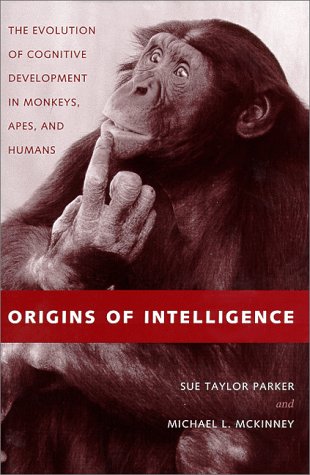A framework for comparing cognition in humans and non-human primates. Sue Parker and Michael McKinney make a strong case for using human development theory (both Piagetian and neo-Piagetian) to study the evolution of intelligence across primate species. Their approach covers a range of social, symbolic, physical and logical domains that fall under the all-encompassing and much-debated term "intelligence". A widely held theory among developmental biologists and social and biological anthropologists is that cognitive evolution in humans has occurred through juvenilization - the gradual accentuation and lengthening of childhood in the evolutionary process. In this work, however, Parker and McKinney argue instead that new stages were added at the end of cognitive development in our hominid ancestors, coining the term "adultification by terminal extension" to explain this process. Based on studies on monkeys, great apes and human children, this book offers insights into ontogenetic constraints that have interacted with selective forces to shape the evolution of cognitive development in our lineage.
- ISBN10 0801860121
- ISBN13 9780801860126
- Publish Date 11 August 1999
- Publish Status Active
- Out of Print 9 January 2001
- Publish Country US
- Imprint Johns Hopkins University Press
- Format Hardcover
- Pages 424
- Language English
- URL https://press.jhu.edu/books/title/2084/origins-intelligence
